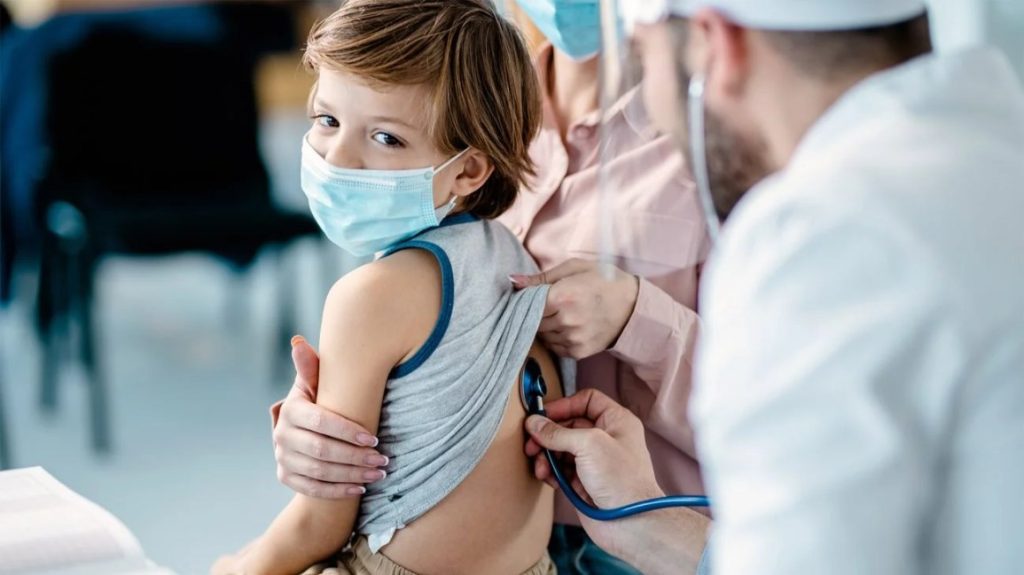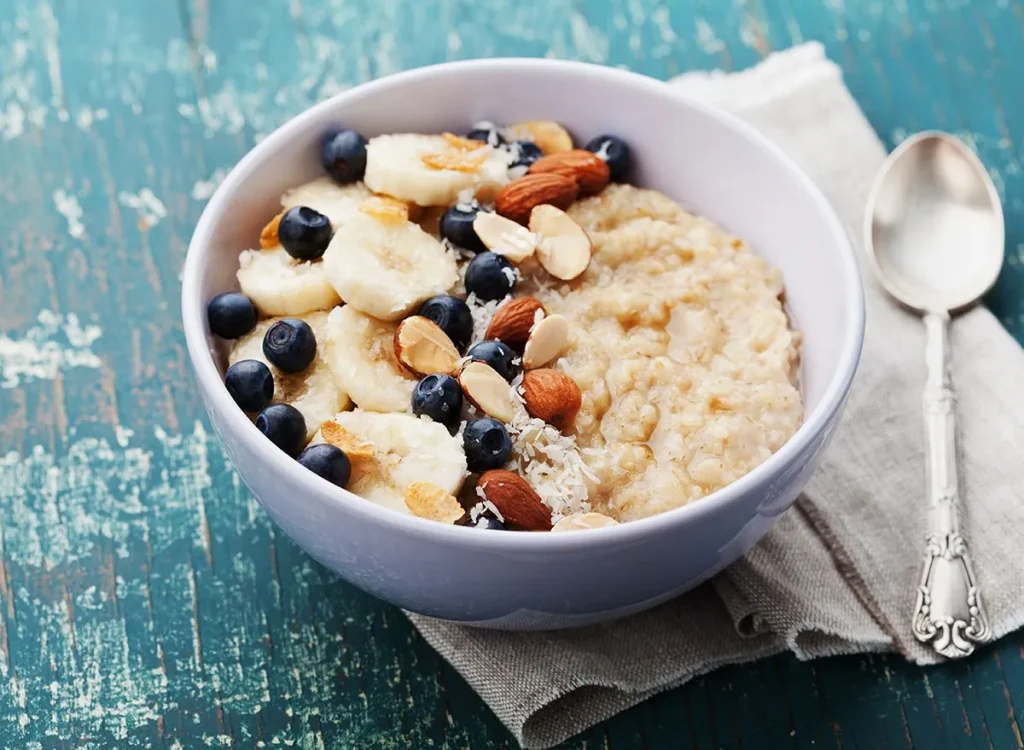When COVID-19 struck, it was the high concern of every parent to ensure their children’s health and well-being. While the media has been bombarded with advice of all kinds, it is important to maintain equilibrium and be able to judge which is sound advice, and which isn’t. Podium understands that while the pandemic persists, our community of parents and concerned individuals should share credible information on the same.
We intend that one should be well-equipped to keep up their immunity in such a time. Here are some tips to help your child maintain a healthy and safe lifestyle.
Ensure that your child is up to date on all vaccines in the COVID-19 period
A vaccine inhibits the spread of 16 distinct diseases. During the pandemic, there was a significant decrease in the number of children who were inoculated with all the necessary vaccines. Therefore, it’s important to ensure that children under the age of 12 are protected against other diseases.
Since many kid-friendly vaccines to counter COVID are still under trial, ensure that your child is up to date on all prescribed vaccines, including the seasonal flu vaccine. Consult an experienced pediatrician on this subject.
Not only this, all members in the family should adopt a cautious approach regarding vaccination. If possible, all the adults should be inoculated with the COVID-19 vaccine. The Center for Disease Control and Prevention (CDC) advises that everyone over the age of 12 should get the COVID-19 vaccine. In India and some other parts of the world this is not possible below 18, but there are news to suggest that it might happen soon.
This will increase the chances of better immunity for children overall. The reason for this is simple — vaccination helps increase the chances of protection against a disease.

Teach your child proper etiquette to combat COVID-19
Washing hands for at least 20 seconds with soap and water is one of the most important measures to prevent transmission of disease in the classroom and elsewhere. When children come into contact with germs, they can readily transfer them, particularly if they wipe their eyes or scratch their noses.

Washing hands regularly, together with vaccination, mask use, and social distancing, is the most effective approach to prevent the transmission of the virus. You can also ask them to carry a handkerchief out of habit. Instruct your child on the do’s and don’ts of COVID-19 appropriate etiquette in public places like trains, malls, stations etc.
Teach your child how to properly wash their hands—and when to do so (after blowing their nose, using the bathroom, and before eating). This reduces their chances of becoming ill and, as a result, infecting others.
Make sure to help small children wash their hands. When handwashing is not an option, the CDC recommends using a hand sanitizer containing at least 60% alcohol to destroy germs that cause COVID-19 and other infections.
Build Immunity!
There is no established method to “boost” the immune system, but it is critical to keep children’s bodies healthy so that their immune system can function efficiently.
Having adequate sleep, eating a balanced diet, controlling stress, exercising, and observing personal hygiene can all help your child avoid getting colds, flu, and other infections.
Even with precautions, most children catch six to eight colds every year as their immune systems mature. With COVID-19 still in circulation, it is more crucial than ever to prevent diseases throughout the 2021–2022 school year.

Vaccination is the most efficient method of illness prevention. Supplements such as elderberry and extra vitamins like vitamin C are becoming increasingly popular among parents, but you should always consult your child’s pediatrician before giving them any kind of supplement.
The American Academy of Pediatrics does not recommend Vitamin supplements for healthy children who eat a diversified diet. Kids should obtain their main vitamins through food.
Establish a Good Sleep Routine
Making sure your child receives adequate sleep is critical to their health. Research suggests that children who do not get enough sleep suffer in a variety of ways. Sleep deprivation can result in poor attention, obesity, depression, suicidal ideation, and injury.
Sleep is not just crucial for a child’s physical and emotional wellbeing; it can also affect how well they perform in school. Furthermore, evidence indicates that children are sleeping less than they did years ago.
A meta-analysis of over 700,000 children from 20 different nations discovered that children’s sleep has reduced by about 1 hour each night over the last century, with the pace of change being greatest during the school year.
Even older children can benefit from a set bedtime. Also, if stress or uncertainty is interfering with sleep, attempt to include predictability into their schedules and provide reassurance.
Serve a Brain-Boosting Breakfast
When it comes to children, breakfast is the most crucial meal of the day. A well-balanced breakfast of protein and complex carbs is a significant element in brain performance and maintaining a consistent level of energy throughout the day.

According to a study, children who have breakfast daily are more likely to get enough nutrients and consume less total fat and cholesterol. Similarly, iron, Vitamin B, and Vitamin D levels are around 20% to 60% higher in children who eat breakfast daily, as compared to those who do not.
Provide Healthy Snacks
After school, children are frequently ravenous. But you don’t have to give up healthy nourishment for the sake of convenience. Nutritious after-school snacks can be just as quick, convenient, and tasty as manufactured snacks.
Snacks are particularly crucial because, when combined with nutritious meals, they help children acquire the nutrients they require.

Furthermore, eating little snacks between meals fosters the concept that children should eat small meals and eat only when they are hungry. This assists your youngster in developing good eating habits.
Be on the lookout for signs of anxiety and stress in your child
Homework, examinations, social pressures—kids experience a variety of stressful situations on a daily basis. Stress can harm children’s health, just as it does with adults.
Therefore, parents must be on a lookout for stress symptoms and discover solutions to alleviate their children’s uneasiness.
This is especially important as your child enters a new school year in an unfamiliar place. Children are still healing from the pandemic’s upheavals, and some may exhibit distress.

Work with your child to identify areas of their life where they have some doubts. Think about what helps them de-stress. Open communication can help a lot in this respect. Cut them some slack, and help them figure out time away from online classes. Refer to these measures, here.
The idea is to tailor stress-reduction measures to each child’s specific needs. Different methods work for different children. If these self-help tactics aren’t working, consult with your child’s pediatrician for advice on how to deal with your child’s worry and stress. Be open to the option of therapy and counselling, if necessary.
Final Thoughts
These tips might sound extremely generic, but a look at these factors will help you in determining the best for your children’s well being coupled with expert opinions from medical professionals. The key is not to overwhelm your child with unnecessary intervention and keep your cool.
It is our advise that you seek credible medical opinions before acting on impulse. It is natural to be worried for our child’s health. But it is nowhere okay to stifle their immune systems with excessive medication. Therefore, we at Podium School hope that you and your children keep well in these times. We wish for you to stay safe and healthy.
Do check out the Podium Blog for such tips and informative articles!
Share with your friends